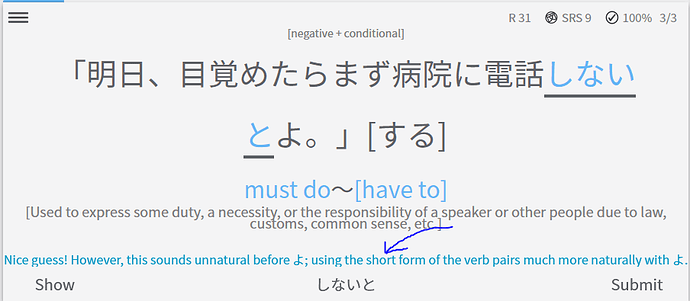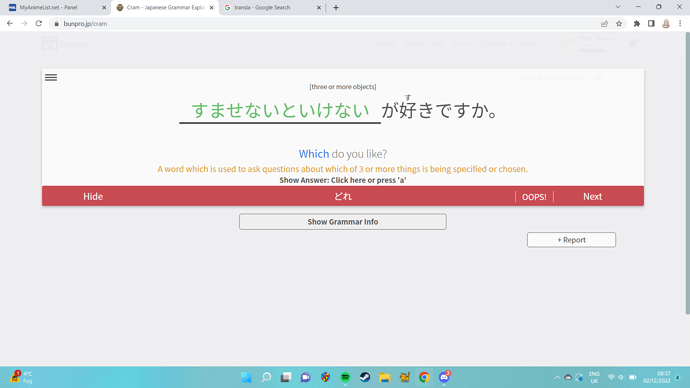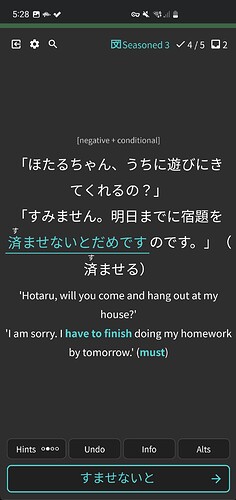must
have to
Structure
- Verb[ ない ] + と + いけない / だめ
- Verb[ ない ] + と …
 ないとならない is generally not used and is best avoided
ないとならない is generally not used and is best avoided
[ないと(いけない) is used to express some duty, a necessity, or the responsibility of a speaker or other people due to law, customs, common sense, etc.]
[と originates from と (if, when), but it doesn’t have its restrictions]
[だめ is more casual than いけない. Both だめ and いけない can be omitted in casual language. ないと(いけない) is quite common as it is easier to produce/pronounce since you simply attach と to the negative short form and the rest (いけない・だめ) is implied]







